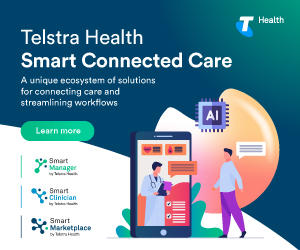Five ways a software upgrade can benefit your practice
You upgrade your phone, your operating systems, even your television, but what about upgrading your medical software in your practice? We live in a technology-enabled world, that is constantly changing, evolving and improving, but for many practice owners and managers, the idea of constantly upgrading is a real pain point.
‘When can I stop upgrading?’ ‘Why do I keep having to upgrade?’ “Why can’t I just use what is already installed?’ These are the frequently asked questions we here at MedicalDirector. However the truth is that any technology you use, will always require upgrades.
Industry demand and patient demand for new features, changes to meet government and regulatory compliance, improvements to enhance security, and ensuring workflow is faster and more efficient, are just a few reasons why we need constant upgrades.
So given that upgrades are here to stay so long in a tech-enabled health ecosystem, the key is not to regard them as a nuisance or ‘waste of time’, but change our perception and recognise that by investing in them, ultimately it is the practice and patients that benefit.
Let’s take a look at five of these benefits:
1. Increased productivity and efficiency
Today we have faster computers, hardware and processors, which means processing workloads is quicker, and older systems won’t be as fast, efficient or contain the latest enhancement as the latest upgrade. For example, a new upgrade could better support remote access via mobile devices, offer more streamlined booking functionality, integrate with other medical software better, or offer more patient engagement features that could give your practice a competitive advantage.
2. Better security
One of the main reasons for installing the latest update is to stay protected from security threats. Older versions of software may not provide the same level of security, potentially leaving your practice data at risk.
And with cybersecurity laws in full force, the pressure is on healthcare providers to be far more accountable for protecting sensitive patient data. So, don’t put your computer systems, or your reputation at risk by failing to utilise the latest software updates
Having the latest healthcare applications are absolutely critical when it comes to combatting security breaches, and prudent healthcare providers and practice managers need to ensure all software systems are updated regularly.
3. Reduced costs
A major software upgrade often involves installing a completely new version of your clinical management program, which offers a significant change or major improvement over your current version. One turn off is that there is a lot of time and energy involved in undergoing these larger upgrade projects, and for most busy practices, time lost also means valuable billable hours lost.
However, while upgrading sounds expensive and time-consuming, the long-term cost of disruption caused by unstable systems and out of date software can very quickly become more than it would to invest in an upgraded system. So while there may be some short-term sacrifices needed for major upgrades, the benefits in the long run will be a faster, more secure and reliable clinical and practice management solution, which can free up more valuable time to focus on patient-centric care.
4. Happier staff
Health support staff and busy, time-poor healthcare professionals can become increasingly frustrated with outdated clinical and practice systems and software – they just can’t work as well or efficiently as they’d like. Younger staff will be particularly annoyed by older systems, especially when they are used to working with agile, mobile-friendly and cloud-based systems outside of the medical practice. So if you’re serious about attracting and retaining great talent, it’s time to seriously think about giving your technology a health check.
5. Engaged patients
Patients can become disgruntled if engaging with a practice that uses slow, out-of-date systems, which can easily give your practice the reputation of being ‘behind the times’.
In fact, MedicalDirector’s recent Patient Engagement Survey 2018, revealed 70% of patients want healthcare providers to better use digital tools, mobile technology and the internet to improve their patient experience. Patients are particularly attracted to specific technologies that could help them better manage their appointments, communicate with their General Practitioners (GPs) and obtain test results and diagnoses.
This means by investing in the right technology and upgrading your systems, you’ll offer patients a more streamlined, personalised experience, and also show them you take the future of patient engagement seriously.









